Psymposium
Vol. 34 No. 1 – June 2023

Understanding People | Working Together
Psychologists’ Association of Alberta
Canoeing on Lake Louise.
Board of Directors
President
Claire Petersen
President-Elect
Mira Singh
Past President
Nicki Wilson
Treasurer
Chris Pawluk
Early Career Representative
Dr. Sandra Dixon
Student Representative
Katherine Archibald
Provisional Representative
Samantha Gruber
Members at Large
Tamara Austin
Dr. Quintina Bearchief-Adolpho
April Salciano
CEO

Dr. Judi Malone
Editorial
Editor-In-Chief
Dr. Michelle Vandegriend
Contributing Writers
Dr. Tracy De Boer
Ashley Bishop Lapierre
Dr. Naheed Jawed Gwen Randall-Young
Dr. Harpreet Gill
Dr. Gina Ko
Dr. Michael Stolte
Dr. Michael Lee Zwiers
PAA Psymposium [ISSN 1193-2627] is the official newsletter of the Psychologists’ Association of Alberta.
Canadian Publication Mail Product Sales Agreement #40020241.
Except where specifically indicated, the opinions expressed in Psymposium are strictly those of the authors and do not necessarily reflect the opinions of the Psychologists’ Association of Alberta, its officers, directors, or employees. The Psychologists’ Association of Alberta reserves the right to edit all articles and submissions before publication and to decide on the suitability for publication.
PAA Psymposium is published five times a year (January, March, June, September, November) for the purpose of fostering communication amongst psychologists and supporting the goals of the Association and the profession of psychology. The newsletter is available to all members of the PAA on our website or by subscription, as well as to public subscribers and selected individuals and organizations with interests in the practice of psychology.
Except where otherwise indicated, copyright 1998 by the Psychologists’ Association of Alberta are in effect. Permission is granted to reproduce up to 10 copies of any article as it appears in PAA Psymposium, if such reproductions are distributed without profit for educational or research purposes only and properly cite Psymposium and denote PAA copyright. Permission for additional reproductions or reproduction for commercial purposes must be obtained in writing from the Editor-In-Chief. PAA generally welcomes requests to reprint from other professional newsletters.
Psymposium is submitted to PsycEXTRA, a database set up by the American Psychological Association, which contains newsletters, policy papers, white papers, fact sheets, reports, magazines. PsycEXTRA is a companion to the American Psychological Association’s scholarly database PsycINFO.

Psychologists’ Association of Alberta Suite 101, 1259–91 Street SW
Edmonton, AB T6X 1E9
1-888-424-0297
paa@paa-ab.ca | www.paa-ab.ca
Mission & Vision
The mission of the PAA is to advance the sciencebased profession of psychology and to promote the well-being and potential of all Albertans. PAA & its members are recognized leaders in enhancing the psychological health of all Albertans
Psymposium
Looking to advertise? Visit the PAA website > Classifieds > Purchase a Psymposium Ad

Stay Connected
@PAAlberta
PAA Staff
@psych.assoc.ab
CEO Dr. Judi Malone
Dir. Professional Guidance Dr. Harpreet Gill
Dir. Professional Affairs Carmen Bellows
Office Manager Joanna Leung
Communications Officer Kim Bernard
CPD Officer Ada Nieminen
Membership Officer Annika Rorem
Professional Guidance Officer Jiya Juneja
Governance Officer Vacant
Summer Students Mattise Gauthier
Saumya Kapoor
2023 June Psymposium 2
@PAAlberta
@PAA

www.paa-ab.ca 3 Featured Content 5 Innovative Practices in Psychology Perinatal OCD 9 Technology in Practice Task Force The Pandemic Led to Changes in Telepsychology….But Will Those Changes Last? 10 Exploring Assessment in Professional Psychology Communicating With Physicians 11 The Universe Within Soul in Business 12 Anti-Racism and Psychology Racism, Disempowerment, Empowerment 14 Ethics Corner Best Practices in Record-Keeping Contents 4 Editor’s Letter 6 Notes from the CEO’s Desk 7 2023 Science Fair Award Winners 8 Board Notes 13 Community of Practice Highlights 15 Meet Your Newest PAA Board Members 16 Spotlight on Award Winner 16 Collaboration 16 2023 PAA & CAP Joint Town Hall Dates 17 Looking For Confidential Ethical Support? 17 2023 PAA Board Meeting Dates 19 Continuing Professional Development 20 Notice of Annual General Meeting 20 PAA Referral Service
By Michelle Vandegriend, Ph.D., R. Psych
Itis May 1st as I write this article, and I’ve learned that it is “Couples Appreciation Day” which highlights the importance of appreciating your partner. As a psychologist who works with couples, I remind myself of the simplest and most effective cornerstone that I can integrate into my work—all the way from couples who have just started dating or newlyweds to couples celebrating decades of being together, and that is helping couples maintain or reestablish appreciation in their daily interactions between each other.
In studying thousands of couples and over decades of research, the Gottmans found that although every couple is different and has their own unique set of challenges, the one common factor across all couples was the need to feel appreciated. There are many ways that couples can express appreciation, but the simplest way is simply to say, “thank you.” In a longitudinal study completed by the Gottman Institute, the most significant relationship-enhancing phrase a couple can use is “thank you.”
It is common that as a relationship progresses and a couple goes through change or stresses, it becomes all too easy to begin focusing on what isn’t happening, or “what the other is doing wrong.” As this negative mindset becomes entrenched, a couple can become immersed in Negative Sentiment Override (NSO)—a hypervigilance to each other’s perceived negativity. Rick Hanson describes this as the brain’s “Negativity Bias”—we are more likely to notice the negative qualities in others rather than the positive ones.
Relationships are not perfect. Helping couples build a genuine sense of “Fondness and Appreciation” in their relationship by recognizing what each other is doing well and expressing “small positive things often” is a powerful way to cultivate happiness and as John Gottman states, “a good enough relationship.” It contributes to an immunity or buffer against feelings or resentment, helps couples reduce destructive forms of conflict, and mitigates stress over the long run.
Happy Couples Appreciation Day—every day!
Michelle
PAA Member and Psymposium Editor-In-Chief

Michelle Vandegriend, Ph.D., R. Psych.
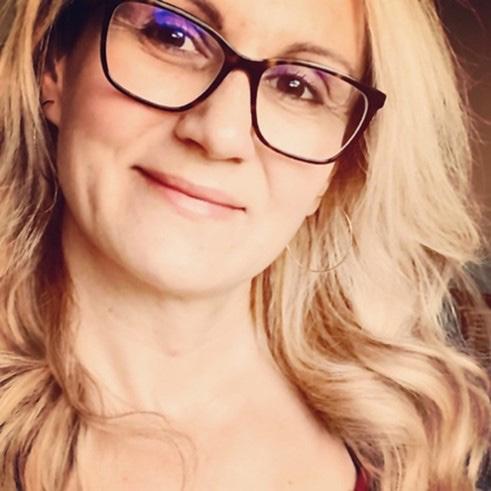
Certified Gottman Therapist
www.stalbertcounselling.com
Email: mvandegriend@stalbertcounselling.com
2023 June Psymposium 4 Editor’s Letter
“The deepest principle in human nature is the craving to be appreciated.”
- William James
Innovative Practices in Psychology
Perinatal OCD
“EMDR is an emerging treatment for perinatal OCD. Instead of targeting the traumatic memories that EMDR is traditionally known for, it instead targets intrusive thoughts and images.”
In this edition of Innovative Practices in Psychology, Psychologist Ashley Bishop Lapierre discusses perinatal mental health. Her interest in this area led her to pursue additional training, and she is a Certified


There is quite a bit of information on postpartum depression and psychosis, but less is known about postpartum OCD. Could you highlight how postpartum OCD is similar to or different from postpartum depression and anxiety?
The mental health struggles of new parents are not well understood by the general population and even by clinicians in this field. The term PMADs, which stands for Perinatal (the period between conception and one year postpartum) Mood and Anxiety Disorders, represents a complete description of mental health concerns in this population. PMADs include perinatal depression, anxiety, psychosis, panic disorder, bipolar disorder, OCD, and PTSD. Perinatal OCD is considered the most misunderstood of all PMADs, often getting misdiagnosed or confused for perinatal psychosis, anxiety, or depression.
Perinatal OCD is OCD that presents in the perinatal period in part because of the intense changes and new responsibilities associated with this developmental period. Perinatal OCD includes strong, repetitive, unwanted, and scary intrusive thoughts and images. These thoughts will often involve harm happening to the baby—either intentionally or unintentionally. Examples can include fears of drowning the baby, sexualizing the baby, or contaminating the baby with germs. While it can be common for new parents to have intrusive thoughts, those with perinatal OCD may misinterpret the nature of these thoughts, creating high levels of distress. The emotions and perceived threats are often managed by behaviours including excessive cleaning, checking, reassurance seeking, or avoiding fearful scenarios. Examples of the behavioural compulsions include over-sanitizing bottles/ clothes/hands, checking to make sure the baby is breathing in their sleep, or avoiding being alone with the baby. What are the risk factors for perinatal OCD?
Becoming a parent is a developmental period with many changes (physical, hormonal, social, relational, financial, identity, sleep, etc.) in a relatively short amount of time, automatically putting parents in a vulnerable state. In their vulnerable state, parents realize they are 100% responsible for their precious and vulnerable baby’s development and survival. This can result in intrusive thoughts, high expectations, increased anxiety, and hypervigilance. While this experience is true for many parents, some might be more impacted by this shift than others.
What are treatment options?
Perinatal OCD can be treated with medication, Cognitive Behavioural Therapy, Exposure and Response Prevention, and EMDR.
I understand that EMDR can be used for those experiencing peri and postpartum OCD; can you tell us how EMDR would be utilized for such patients?
EMDR is an emerging treatment for perinatal OCD. Instead of targeting the traumatic memories that EMDR is traditionally known for, it instead targets intrusive thoughts and images. EMDR uses bilateral stimulation and processing to reduce the distress associated with the content of the thought and the distress around having the thought. It would also address shame and negative beliefs about oneself resulting from having such a thought (eg: I am a monster for thinking this about my baby) and reprocesses to help the client see a more positive, adaptive belief about self (eg: I am a good parent, and my thoughts do not represent my intentions). EMDR offers the patient a gentle way of healing through the distress associated with these intrusive thoughts and beliefs about self. Sometimes OCD thoughts and triggers have roots in traumatic memories, and EMDR can be used to process those memories. In addition, there are adaptations of EMDR protocols designed to help target a client’s urge for compulsive behaviour. Read the full length article.
www.paa-ab.ca 5
Perinatal Mental Health Provider (PMH-C).
Ashley Bishop Lapierre, R. Psych
Dr. Naheed Jawed, R. Psych
Notes from the CEO’s Desk
By Dr. Judi L. Malone, PAA CEO Registered Psychologist (AB/AUS)

Ilove June. It’s the month my daughter was born. It’s when we celebrate National Indigenous Day. It’s the solstice. And it’s extra special for me when all three occur on the same day.
We are so grateful for the remarkable contributions of PAA & CAP’s Truth and Reconciliation Taskforce. We continue to increase our resources for you, our members, in celebration but also in recognition of the need for awareness. If you are a psychologist. If you are a Canadian. If you are a person—this is a history and a present essential for us all to be familiar with!
Have you listened to the song, None of Us Are Free? (Songwriters Mann, Russell, & Well)?
Well, you better listen my sisters and brothers, Because if you do, you can hear
There are voices still calling across the years. And they’re all crying across the ocean, And they’re crying across the land, And they will till we all come to understand.
None of us are free. None of us are free. None of us are free, if one of us are chained. None of us are free. And there are people still in darkness, And they just can’t see the light.
If you don’t say it’s wrong, then that says it right. We got try to feel for each other, let our brothers know that we care.
Got to get the message; send it out loud and clear. None of us are free. None of us are free. None of us are free, if one of us are chained. None of us are free. It’s a simple truth we all need, just to hear and to see.
In closing…
None of us are free, one of us is chained. None of us are free.
Now I swear your salvation isn’t too hard to find, None of us can find it on our own.
We’ve got to join together in spirit, heart and mind. So that every soul who’s suffering will know they’re not alone.
None of us are free. None of us are free. None of us are free, if one of us are chained. None of us are free. If you just look around you, You are going to see what I say.
Because the world is getting smaller each passing day. Now it’s time to start making changes, And it’s time for us all to realize,
That the truth is shining real bright right before our eyes. None of us are free. None of us are free. None of us are free, if one of us are chained. None of us are free.
Together, we keep challenging ourselves, our profession, and our society to be more. Each of us contributes to that process.
Judi
2023 June Psymposium 6
“I believe each person, each family, each community, has the medicine they need to live a good life.”
Dr. Karlee Fellner, Cree/Métis Psychologist
2023 Science Fair Award Winners

PAA encourages youth participation in project-based science by supporting regional science fairs. Join us in congratulating the winners of the Behavioural Science Award, 2023 Edmonton Regional Science Fair! Thanks to PAA staff member Ada Nieminen who volunteered as a judge! Photo credit: Michael Kennedy.

Award Winner
Project: Fidget or Not
Student: Bethany Worssa
School: Aurora Academic Charter High School
Honourable Mention
Project: Alex, the AI That Doesn’t Exist
Students: Nandika Senthilkumar & Zenia Pereira
School: Aurora Academic Charter School
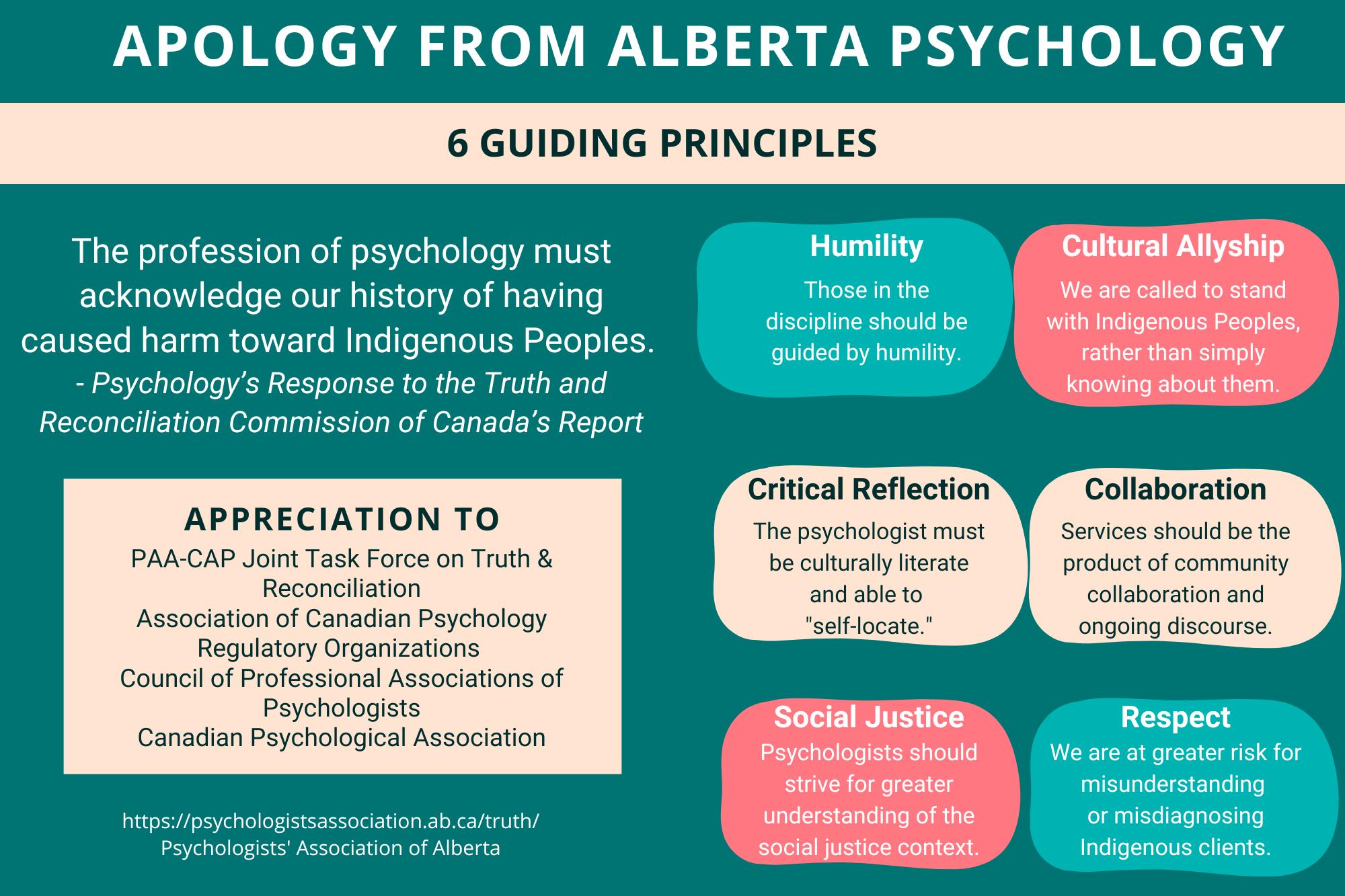
www.paa-ab.ca 7
Board Notes
By Claire Petersen, R. Psych
It’shard to believe that a year has come and gone. I am grateful and honoured to have served as your president over the past year and I am excited for the year ahead. This spring, I was fortunate enough to be able to attend the APA Practice Leadership Conference in Washington, DC. This was a highlight professionally. The networking opportunities with leaders across the state, provincial and territorial associations were invaluable. In conversations with our colleagues around North America, I was reminded how much we can be proud of in Alberta. The conference was both informative and inspiring; I returned with a renewed sense of commitment to the work we are doing with PAA.
As a board, we have recently set our goals and intentions for PAA in the 2023-24 year. This opportunity to come together to reflect on our progress, revisit our strategic plan, and determine next steps is always reenergizing for the board and it is a time that I look forward to. I am eager to get to work on your behalf alongside the other members of the Board of Directors: Nicki Wilson, April Salciano, Dr. Sandra Dixon, Tammie Austin, Mira Singh, Samantha Gruber, and Katherine Archibald. We are also excited to welcome Chris Pawluk and Dr. Quintina Bearchief-Adolpho to the board and we look forward to the fresh perspective and unique experiences they bring with them.
As we prepare to move forward with our newly formed board, I would also like to extend heartfelt thanks to our outgoing board members. This year, we fondly say farewell to three board members who I truly admire and respect.
Dr. Sally MacLean has loyally served on the PAA board since 2017 and she has brought a wealth of experience and knowledge. Dr. MacLean has served the board as treasurer, vice-president, and most recently, as the Council of Professional Associations of Psychologists (CPAP) observer as well as participating on numerous committees and taskforces over the years.

Heather Gower joined the board in 2019 as our first provisional board representative. She has also held the board custodian position and most recently president-elect. Heather has been a passionate advocate for provisional psychologists and contributed as a member of the Mentorship Taskforce, highlighting the benefits of rich and robust mentorship experiences for psychologists.
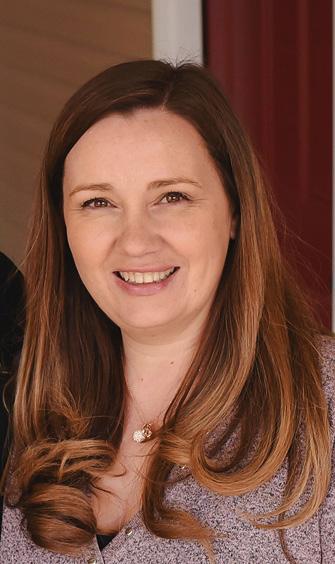


Dr. Jacqui Linder is also leaving the board this year after serving a three-year term as a board member at large. In 2020, Dr. Linder was the recipient of the PAA Pettifor Lifetime Achievement Award for her commitment to social justice, academic excellence, and ethical and compassionate clinical practice. Dr. Linder’s unique experiences as a psychologist were an asset to the board.
We wish each of you continued success as you pursue other projects, roles, and opportunities. Thank you for your service, leadership, and commitment to the advancement of our profession.
Finally, it is with sincere gratitude that I wish to thank and recognize each of you, as our members, for your hard work, dedication, and contributions to psychology. Together, we are all PAA.
Gratefully, Claire Petersen, R. Psych
2023 June Psymposium 8
“This year, we fondly say farewell to three board members who I truly admire and respect.”
Dr. Sally MacLean
Heather Gower
Dr. Jacqui Linder
Technology in Practice Task Force
The Pandemic Led to Changes in Telepsychology….But Will Those Changes Last?
Dr. Michael Stolte, R.
 (AB), PhD in Special Education
(AB), PhD in Special Education
Similarto many of our colleagues at the outset of the COVID-19 pandemic, we made a rapid shift to provide telepsychology in the spring of 2020. This shift included ongoing reflection about the numerous benefits, drawbacks, and barriers inherent in the provision of telepsychology. Telepsychology practice was never a personal interest—we did not seek out training or supervision in the area prior to the pandemic. As the landscape of the public health risks associated with in-person services has shifted, we have been curious about the place of telepsychology in future practice. As members of the PAA Taskforce for Technology in Practice, we drew upon some of the recent academic literature to learn more about how psychologists are responding to this rapid adoption of telepsychology and to gather where the field is heading.
One article that caught our attention outlined the drastic twelve-fold increase in the amount of telepsychology being provided by psychologists—from 7% of the workload pre-pandemic to 85% during the pandemic (Pierce, Perrin, Tyler, & McKee, 2021). Pierce et al. (2021) found that psychologists anticipate that approximately 35% of their work will remain in telepsychology following the pandemic. The initial impetus of the pandemic to pursue training in telepsychology as well as increased practice in telepsychology through the pandemic seems to have resulted in a shift in professional attitudes towards this mode of service delivery (Schipman, 2023).

It was not surprising to see a significant increase in the provision of telepsychology services over the pandemic; however, Thomas et al. (2022) highlighted some barriers to continued telehealth practice. Clinician resistance to the ongoing provision of telehealth was listed as one barrier. Those who perceived the abrupt change to telehealth as inappropriate or unsafe, particularly when coupled with a lack of experience and confidence, expressed resistance to ongoing use. Telehealth was qualitatively described by organizations and healthcare providers as being associated with lower engagement by both practitioners and consumers and poorer job satisfaction and fatigue for providers (Thomas et al. 2022). Healthcare providers indicated drawbacks need to be balanced by increased benefit to consumers and additional organizational and systemic support.

In the coming year, we hope to read more academic literature about client or consumer perspectives of telepsychological interventions. We found it fascinating to learn how opinions shared on Twitter demonstrate an increased presence of content related to telehealth for mental health and addiction relative to pre-pandemic (Baird, Xia, & Cheng, 2022) and that the content on telehealth was associated with primarily positive emotional sentiments (Pool et al., 2022). These studies may indicate that client interest in telepsychology remains.
As increased practice in telepsychology converges with continued requests for this service, it seems that telepsychology will outlive the pandemic. What appears to be of import to the maintenance of that change is ongoing competency development along with systemic support to ensure the delivery of effective and ethical telepsychology services.
References available upon request.
www.paa-ab.ca 9
Psych.
“As increased practice in telepsychology converges with continued requests for this service, it seems that telepsychology will outlive the pandemic.”
Tracy De Boer, Ph.D., R.Psych
Exploring Assessment in Professional Psychology

Communicating With Physicians
By Michael Lee Zwiers, Ph.D., R. Psych
Thisarticle draws on my years of experience working with primary care physicians, pediatricians, and psychiatrists. I offer some guidelines around communicating with physicians—and particularly GPs.

As health professionals, psychologists should rightfully be considered part of the healthcare team. However, if we want to be accepted as full members of the healthcare team, we need to communicate with other specialists— particularly family doctors who often serve as case managers and gatekeepers to access other services. As psychologists, we are typically only involved for a few months at a time. Family physicians oversee the care of their patients for years, often decades, and sometimes across generations. By communicating our work to physicians, we can help to ensure that our patients receive the most appropriate medical care in the long term.
What to Write
We should communicate with physicians about our significant professional interactions with patients. When you send a consultation note, try to summarize key information on a single page. Include assessment findings, treatment updates, and other important information. If you have conducted a complex evaluation such as a psychoeducational assessment or medicolegal evaluation, don’t just send them a copy of the report and expect them to read it (even our summaries within reports are often too long). Physicians are busy professionals, and they don’t get paid to read long letters and reports. Instead, write a simple letter outlining when you saw their patient; what you did (e.g., history taking, clinical interview, rating scales, formal testing); and what you found. Your findings should definitely include diagnostic formulations but they may also include relevant medical or personal history that might be important for the GP to know. After this, provide any recommendations you might have. It could look something like this:
“Dr. Niceguy, I met with your patient on two sessions for an intake assessment. During the consultation, I reviewed
her history and presenting concerns, and had her complete several mental health rating scales. After considering all sources of information, I found that she meets the criteria for Generalized Anxiety Disorder (DSM-5-TR: F41.1). She has agreed to see me for treatment, which will take place on a weekly to biweekly basis. I will provide you with regular updates on her progress in treatment. Please contact me should you have any questions or concerns.”
Family physicians have a unique relationship with their patients. As an allied health professional, you want to support that relationship, communicate effectively, and avoid doing anything that may jeopardize or challenge that relationship. If you want to request something from the physician, be careful how you word things. Although it isn’t your job to tell the physician what to do, it is important to tell a physician what concerns you about their patient. “Dr. Niceguy, I met with your patient and I am concerned that he has a significant untreated AD/HD. I suggested to him that he might benefit from a medication consultation.” When doing this, be sure not to suggest any particular medications, or even classes of medications, to the physician. Sometimes it can be helpful to point them in the direction of trustworthy Canadian resources. For example, when diagnosing ADHD, I often insert the following paragraph in my letters: “I suggested that he/she speak with you about the potential use of medication as part of his overall treatment plan. The Canadian ADHD Resource Alliance offers information for Canadian physicians, including free evidence-based guidelines https://www. caddra.ca/download-guidelines/.”
Read the full article
This article draws on some of the ideas presented in my April 2013 Psymposium article: Building Your Practice by Building Relationships with Physicians.
2023 June Psymposium 10
“If we want to be accepted as full members of the healthcare team, we need to communicate with other specialists—particularly family doctors.”
The Universe Within
 Soul in Business
By Gwen Randall-Young, R. Psych
Soul in Business
By Gwen Randall-Young, R. Psych
Itis increasingly common to talk of soul in relation to personal partnerships: terms like ‘soul mates’ or ‘soul connections’ describe the presence of a deeper part of our being in such relationships. Soul consciousness is not limited to the realms of love and creativity. It is for us to find it in every aspect of our lives.
In personal relationships, we see how we are mirrors for each other. We understand the themes that play themselves out between generations or as we move from one relationship to the next. We often do not think of business relationships in the same way, treating business as somehow a separate part of our lives. The deeper consequences of our actions affect us equally in our personal and business lives.
Integrity is the key word. If we are taking advantage of, or creating hardship for others, then what we are doing is lacking in integrity. If our product or service damages the environment, and we choose to ignore that, we are out of integrity. If we see the people with whom we deal only as ‘prospects’ or ‘potential sales,’ we miss incredible opportunities for strengthening our earthly connection to soul. Every person in our lives is significant from the soul’s perspective. Each one provides an opportunity for being in our highest self and somehow enriching their experience on Earth.
The basis for business originally had to be helping each other. Two could create more than one and both would benefit. Those who had abundance could help those who didn’t. Each could contribute in their own way. Jonas Salk wrote about the survival of the wisest. In 1976 he anticipated the need for a change in the predominant values, away from domination and competition towards cooperation, partnership, and the win-win perspective.
As a species, we are evolving, and positive evolution is like a growing up. Aligning with the wisdom of the soul leads us in the direction of less self-centredness, and greater compassion towards all other beings. We learn to see every soul as equal to every other, regardless of
position. We understand that our business dealings are secondary to what is happening at our soul level, and those with whom we deal.
We are also challenged to assess whether our work honours our own soul. If it is not nourishing to us, then misalignment is felt between body, mind, and soul. It manifests as stress or even illness. It should not be surprising that many very successful businessmen succumb to heart attacks. Perhaps the heart and soul are refusing to follow an unhealthy path without putting up a fight.
Integrity means honesty and sincerity. Its root is ‘integral,’ which means essential, complete, whole. Honouring soul in business means not only acting openly and honestly but ensuring that we look carefully at the essence and implications of all that we do. It requires honouring the beautiful spirit of wholeness, of oneness, on which our Universe is based.
Gwen Randall-Young is an author and awardwinning psychologist. For permission to reprint this article, or to obtain books, CDs or MP3s, visit www.gwen. ca. Follow Gwen on Facebook for inspiration.

“We are also challenged to assess whether our work honours our own soul. If it is not nourishing to us, then misalignment is felt between body, mind, and soul.”
Anti-Racism and Psychology
Racism, Disempowerment, Empowerment
By Gina Ko, Ph.D., R.Psych
Asa psychologist and podcast host (https://www. againstracismpodcast.com), lifelong learning is one of the most rewarding aspects of my work. The Asian diaspora is not a homogenous group, and there are individual, cultural, and generational differences. Hence, Asians’ experiences of microaggressions and overt racism are diverse. Being asked where you are from and hearing comments such as, “Asians should be good at math; Asian women are bad drivers; you are good-looking for an Asian” is unacceptable and damaging. With the cumulation of such comments, and overt racism, racial trauma is real. The pandemic has exacerbated anti-Asian racism; many are punched, kicked, and even killed. Such violent acts primarily target seniors, women, and children. Dangerous words of othering and dehumanizing can create massive consequences. Here, I share what I have learned from my incredibly courageous and resilient Asian patients.

I have been working with many patients in their 20s, 30s, and 40s who identify as second-generation Asian Canadians. They are bold and resilient; they have been questioning their identity from a young age. Being raised bicultural and with intersecting identities, they have had to navigate belonging and acceptance since beginning school. Some voice that they lack a direction, as the predominant message is to do well in school, go to university, find a stable job, get married, have children, and retire well. Some have shared that they would not have pursued their career if they did not feel the pressure to find a stable and prestigious job. Some are unfulfilled but do not know what they actually want to do. However, they feel more hope and less stuck when exploring values and taking action toward a more meaningful and fulfilling life. This group generally
wants to speak up against racism, and some have contacted managers regarding moments of being othered and feeling invisible.
I speak Cantonese and am meeting with older Asians (50 plus), and they tell me it takes them more convincing to come to therapy. Many are introduced to me by their children. They have shared that they do not know how they feel because emotions feel foreign: they have stuffed emotions down for decades and even generations. Some have shared that they do not know why they are irritated and eruptive. Some have shared that they do not want to live that way anymore but do not know how to be different. Some have mentioned they want more connection with their children, but there is still disconnection. It is moving to bear witness to their pain and awareness, and to offer ideas to support them (such as asking their children questions for understanding). This group generally does not know how to speak up against racism because of the fear of not being believed, and thereby facing repercussions.
The hope is that there will be an increasing number of Asian and people of colour seeking therapy. There is more destigmatization and awareness about mental health. Yet, the system is not welcoming for racialized patients, especially those who need language and cultural bridges. Just because a racialized client is seeing a racialized therapist, there are no guarantees that they are a good match. There needs to be more training offered for clinicians to be anti-oppressive and anti-racist so that racialized patients’ cultural being is seen, heard, acknowledged, and treated as a strength.
2023 June Psymposium 12
“The system is not welcoming for racialized patients, especially those who need language and cultural bridges.”
Community of Practice Highlights
Did you know that many of the Communities on Collaborate are holding monthly virtual get-togethers?
Check out the Monthly Indigenizing Psychology Chat or the Monthly Supervision Meeting to meet the Community Engagement Executives and learn and connect over topics that interest you. Maybe you could even join an Executive Team for a Community you care about and start your own meetings!

Email paa@paa-ab.ca to get involved as an Engagement Executive or if you have questions about how to start collaborating.
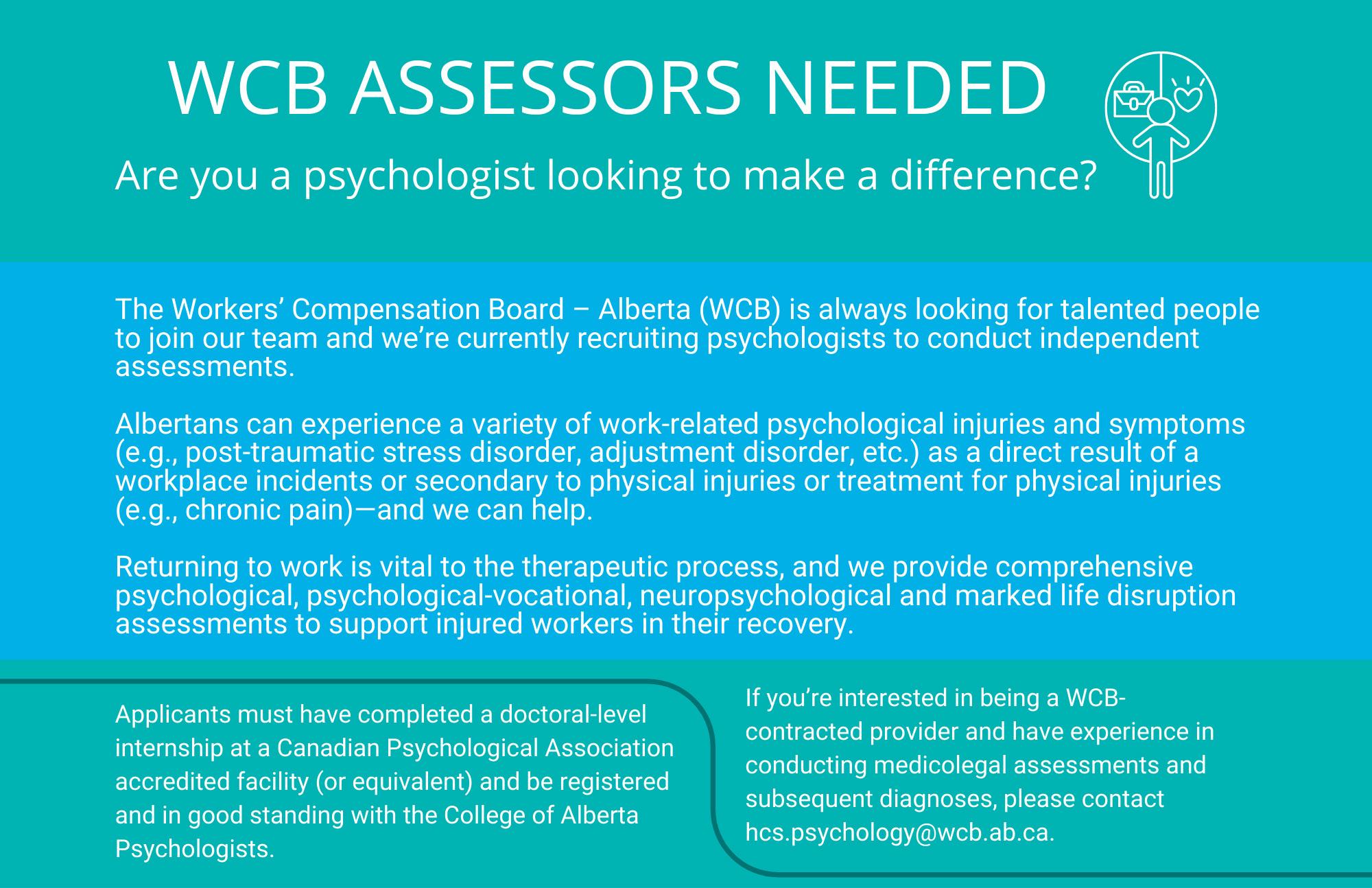
www.paa-ab.ca 13
Ethics Corner
Best Practices in Record-Keeping
By Harpreet Gill, Ph.D., R. Psych

Asper the College of Alberta Psychologists’ Practice Guidelines on Psychological Records:
“Psychological records ensure compliance with the CAP Standards of Practice, facilitate the provision of quality services, facilitate the continuity of care, and protect the client, the public, and the psychologist.”
A psychological record requires documentation of: Identifying information, service date, duration of the service, type of treatment (treatment or assessment) informed consent explained, whether the patient consented, limits to confidentiality, any mandatory disclosure, presenting problem(s), diagnosis, history of the modalities used, cultural factors, current functioning, mental and physical status, medication use, any substance use, risk of harm to oneself or others, documentation of the suicide/violence assessment, treatment plan, goals and progress made.
One must document any additional interventions provided over the phone or through e-mails and any collaborative care through consultations or any referrals made. Psychologists may face challenges maintaining the patient’s privacy and confidentiality and releasing information to third parties. We need to consider four perspectives: ethical, clinical, legal and risk management.
Some important considerations for record-keeping:
Type of setting
Reflect on the type of work setting, whether as an independent practitioner, a consultant, an employee within an organization, or a contractor. Clarify at the outset who owns the patient files and how patients access their files.
Nature of psychological services provided
At the outset of the therapeutic relationship, it is important for a psychologist to be clear about the services being offered whether they are for forensic or continuity of care
or for an assessment for a third party. It is also important that the content in the record be maintained accordingly.
Type of clientele
Maintaining records for couples, families, and groups can be challenging, especially in high-conflict divorce and family litigation. It is very important to clarify the release of information and the process of release at the outset of therapy, and to document individual information as well as relational when working with couples. Maintaining group therapy records can be tricky. Care should be taken to protect the individual identity while documenting the group’s goals and progress made.
Retention of records
As per the College of Alberta Psychologists (CAP), the minimum period to keep psychological records is 10+1 year, a total of 11 years. There are some exceptions to the 11-year rule when it comes to minors, persons with disabilities and those who have been a victim of serious crime. One must weigh competing considerations when thinking of keeping records beyond the period required. Other than logistical challenges and the expense for the psychologist, there is a risk of the information being misused or misinterpreted which could harm the patient.
Disposition of records
To ensure continuity of care and ongoing access to psychological records, psychologists should have a plan to deal with contingencies. One may designate a records custodian, who operates within the ethical boundaries, maintains patients’ privacy and confidentiality, and provides access to the patients’ records. Having a professional will in place is something to explore as well.
Record-keeping can be challenging and rewarding because of the interplay between ethical, clinical, legal, and risk management issues. Be sure to follow CAP’s Standards of Practice (Maintenance and Retention of Records), CAP’s Practice Guidelines (Psychological Records) and all applicable privacy laws and legislations.
2023 June Psymposium 14
“Record-keeping can be challenging and rewarding because of the interplay between ethical, clinical, legal, and risk management issues.”
Dr. Harpreet Gill is PAA’s Director of Professional Guidance, a program that assists members in learning about ethics and thinking through ethical dilemmas in their work as psychologists.
Meet Your Newest PAA Board Members
We are excited to welcome Quintina Bearchief-Adolpho and Chris
Oki, nisto’akoaka Naatoyaimoniisaakii. My English name is Quintina Bearchief-Adolpho, Ph.D. I am a member of the Siksika Nation and was raised by my parents, Clement and Theresa Bearchief. Married to Robert Kaanoiakapuuwai Adolpho, we have six children and five grandchildren (soon to be six).
Serving our profession for over twenty years, I am currently the Mental Health and Wellness Clinical Team Lead for Siksika Health Services. Growing up hearing Blackfoot stories, I have used the lessons taught to guide my life personally and professionally, guiding the roles we play when we work together in harmony.
As a psychologist with 17 years of experience working and residing in Treaty 7 / Métis National of Alberta Region III, I specialize in assessing and treating neurodevelopmental disorders in children and adults. A lead practitioner in teleassessment, I am registered in seven provinces and territories.
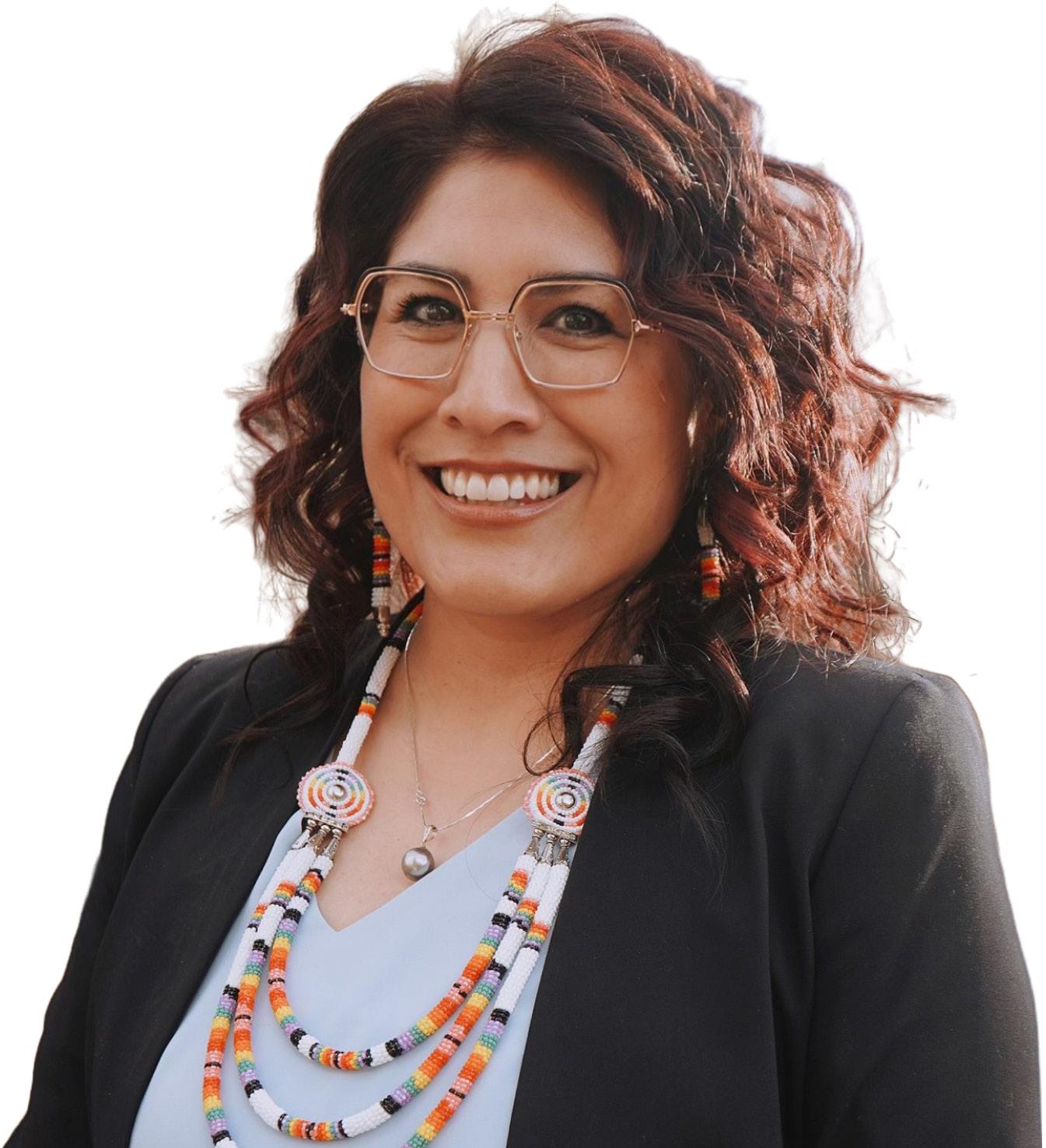

Now with Hexagon Psychology, I was the Lead Psychologist for Rocky View Schools. I appreciate connections, networking opportunities, and the support that I have received from PAA and want to contribute to these benefits to ensure the best possible outcomes for our profession and those we serve.
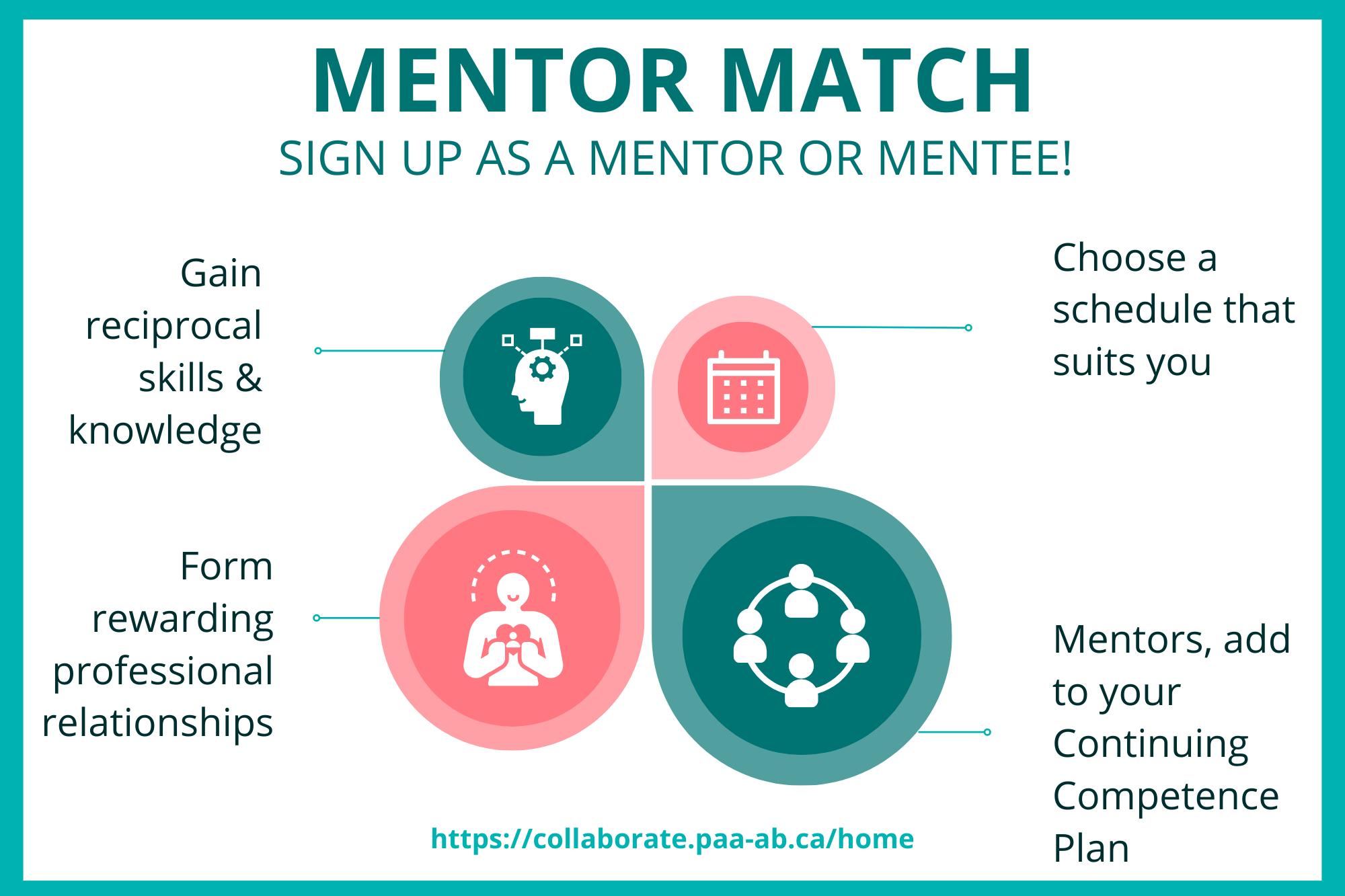
www.paa-ab.ca 15
Dr. Quintina Bearchief-Adolpho
Chris Pawluk
Pawluk to the PAA Board Team!
2023 PAA & CAP Joint Town Hall Dates

CONNECT WITH PAA AND CAP!
LOCATION: Red Deer
DATE: Fall, 2023
Any dates are subject to change. Visit our Events and Webinars page.
Dr. Lana Hawkins was elected to the APA Council of Representatives
• Robert McGarva as Rural Health Coordinator Representative for Alberta
• Dr. Judi Malone as the CESPPA representative for Alberta
• Nicki Wilson as Division 31 Representative
Canadian Council of Professional Associations of Psychology
• Dr. Judi Malone, Alberta Voting Participant
• Tammie Austin, Alberta Participant Observer
National Committee on Psychologist Wellness of ACPRO & CPAP
• Tatiana Lund, Student Volunteer
• Dr. Judi Malone, Co-Chair
Dr. Judi Malone serves on the CPA board representing the provinces
Association of Canadian Psychology Regulatory Organizations
• Dr. Judi Malone serves as the liaison of the professional associations to ACPRO
Alberta Health Services
• Dr. Judi Malone participates in the:
» AHS Professional Practice Council for Psychology
» AHS Clinical Strategic Network for Addiction & Mental Health
» Alberta Mental Health Research Hub–Addictions & Mental Health
2023 June Psymposium 16
Dr. Gina Wong
Looking For Confidential Ethical Support?





Did you know that PAA has launched a Professional Guidance Program?
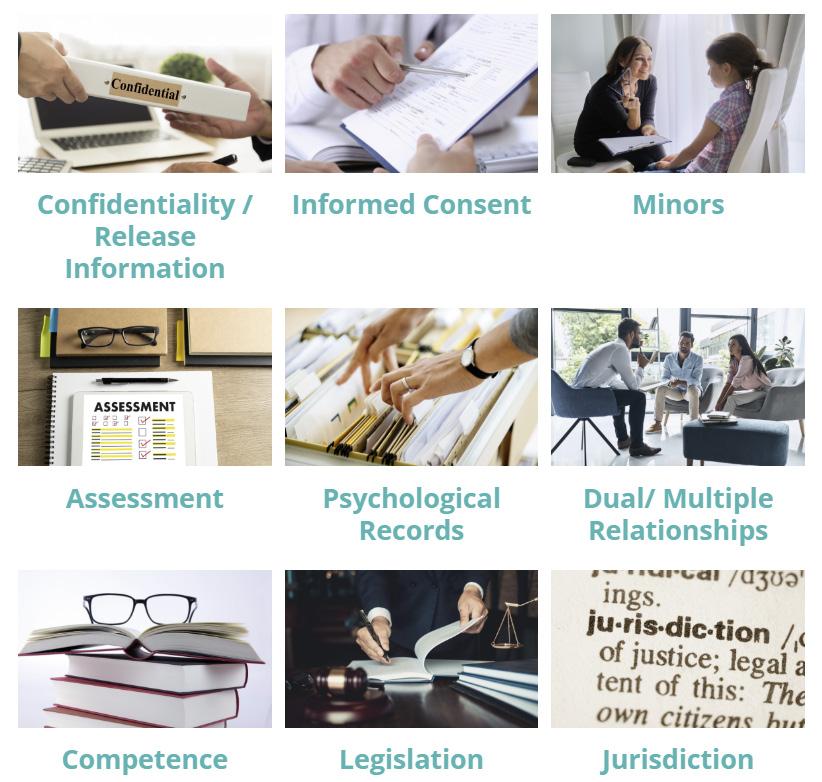
The goal and mission of Professional Guidance Program is to assist members in learning about ethics and thinking through ethical dilemmas in their work as psychologists. The program also provides PAA members and non-members with the opportunity to consult and discuss their concerns with the Professional Guidance Director or a Practice Advisor.
Our staff can assist you in learning about and thinking through ethical, clinical and professional dilemmas in your work as psychologists. We will evaluate your needs and suggest resources that are relevant to your inquiry. And did you know? As of 01 April 2023, if you use our fee-for-service consultation with PAA’s Professional Guidance Director, you will receive a 1.0-hour Continuing Education Credit for that consultation.
If you need support navigating an ethical or clinical concern, visit our webpage or contact us at guidance@ paa-ab.ca


2023 PAA Board Meeting Dates

The PAA Board of Directors meeting dates for 2023:
• 08 September 2023
• 08 September 2023: The 2023 PAA AGM Online
• 03 November 2023
MEMBER BENEFITS




www.paa-ab.ca 17

2023 June Psymposium 18 Paid Advertisement
Continuing Professional Development
Pain Psychology: An Introduction to Chronic Pain Management Approaches
Virtual, 27 & 28 June 2023 | Emily Moore, Ph.D. | 6 CE Credits
The widespread prevalence of chronic pain is a major challenge for healthcare systems, clinicians, and patients. There is a significant need for evidence-based biopsychosocial clinical intervention for people living with chronic pain. Register
General Assessments for Counselling Psychologists
Calgary, 13 October 2023 | Jamie Dyce, Ph.D. | 6 CE Credits
Assessment and counselling are integral components of the psychotherapy process. Assessment occurs in the initial stages and is often ongoing to inform the psychotherapy process. Topics for this workshop will include mental status examinations, psychometrics, screening measures, and limitations of self-report.
Register
Breaking the OCD Cycle: The Power of Exposure and Response Prevention
Edmonton, 20 October 2023 | Janet Caryk | 6 CE Credits
Obsessive-compulsive disorder is not rare and it typically starts early in life. Too often it goes undiagnosed or misdiagnosed for years. Clients living with OCD are often offered therapy strategies that backfire and make symptoms worse. We will discuss the gold standard treatment for OCD, Exposure and Response Prevention.
Register
Family Restructuring Therapy: Separated, Divorced, and Never Married Families
Edmonton, 03 November 2023 | Stephen Carter, Ph.D | 6 CE Credits
The Family Restructuring Therapy workshop covers a multitude of topics related to the challenges separated/divorced families face and help identify high-conflict families. The overview of Family Restructuring Therapy reviews the components of the therapy, boundaries, and self-care.
Register
Primers
One-hour recorded overview of the topic. Watch anytime, anywhere ($40 + GST).
What’s New in the DSM-5-TR–Dr. Michael Lee Zwiers

Effective Advocacy–Dr. Judi Malone
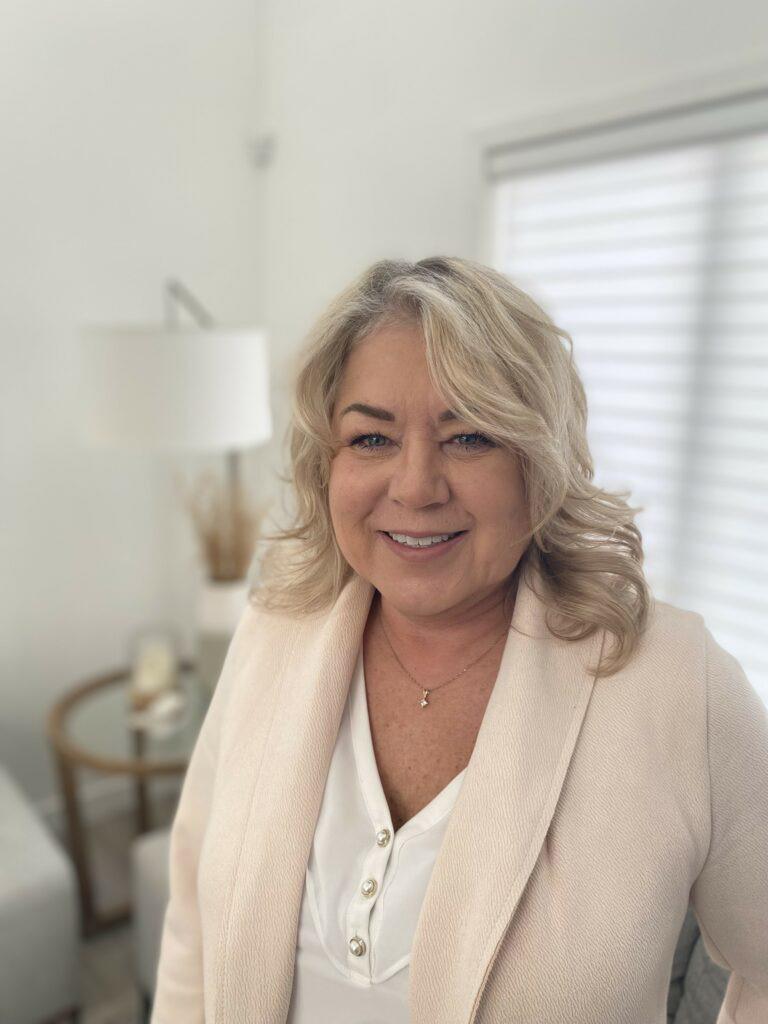
Assessing Perinatal Mental Health–Kristine Aanderson, Mallory Becker and Dr. Gina Wong
Psychedelics and Psychedelic-Assisted Therapy–Megan McElheran, Ph.D.
Prescribing Service Dogs or Emotional Support Animals–Kristine Aanderson
The Erupting Addictions Pandemic–Dr. Kevin Alderson
The Game of Life: An Introduction to Using Basic Sport Psychology Principles in Clinical Practice–Dr. Caelin White
Family Restructuring Therapy–Dr. Stephen Carter
Trauma & PTSD in First Responder Populations–Dr. Megan McElheran
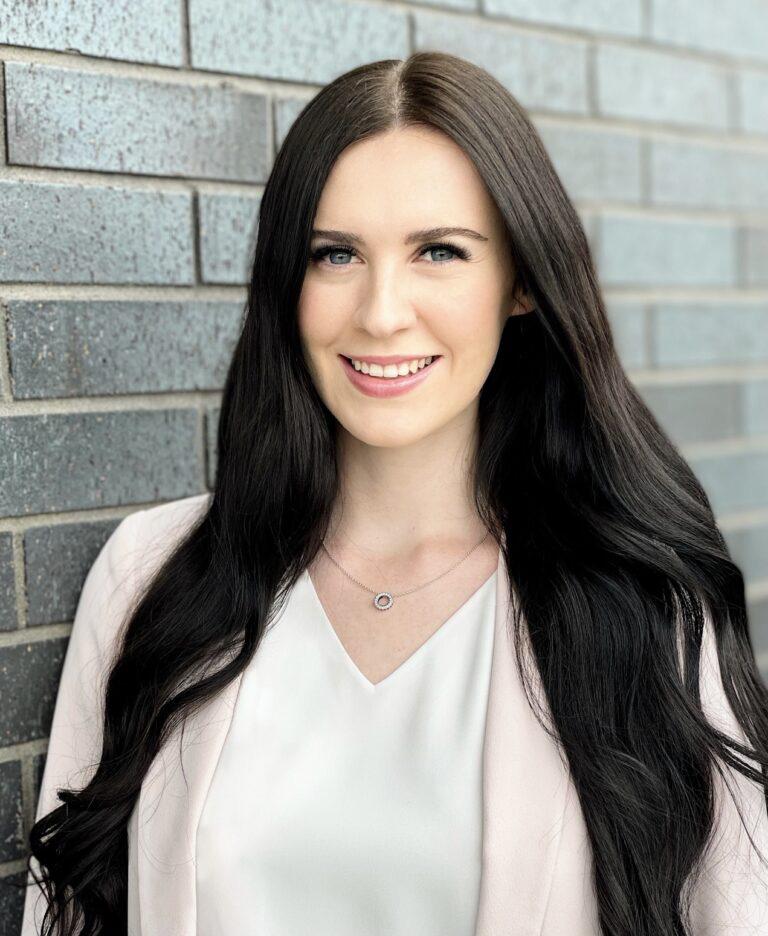
Psychology of Cannabis Addiction–Dr. Jonathan Stea
Preparing for Cannabis Legalization: A Psychologists’ Evidence-based Guide–Dr. Igor Yakovenko

www.paa-ab.ca 19
Notice of Annual General Meeting
Notice of the Annual General Meeting of the membership of the Psychologists’ Association Of Alberta:
The PAA Board of Directors is hereby providing notice pursuant to PAA bylaw 6.3, to call the Annual General Meeting of the membership as follows:

Date: Friday 08 September 2023
Time: 12:00pm - 1:30pm
Location: Online
PAA Referral Service
Are you marketing your private practice effectively?
The PAA Referral Service provides the public with the contact information of registered psychologists who match their region/area of expertise. With excellent value for your marketing dollar investment, the Referral Service is an ideal advertising strategy for those in private practice.
Early Career and Provisional members–you are now eligible for the Referral Service too!
Already on the Referral Service? Use our series of videos for your marketing purposes.
To learn more, visit the PAA website > Membership > Purchase or Renew Membership > 2023/24 > 2023/24 Memberships, and scroll down to Add On Services.
From 01 Feb to 30 April 2023, we averaged
2,301referrals/month. That’s
77 per day.


















 (AB), PhD in Special Education
(AB), PhD in Special Education




 Soul in Business
By Gwen Randall-Young, R. Psych
Soul in Business
By Gwen Randall-Young, R. Psych



























